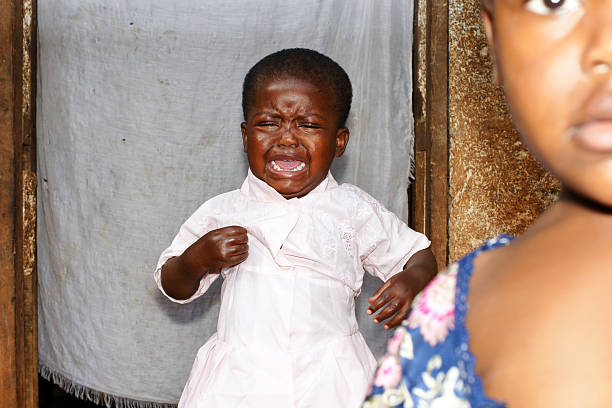Halimatu was just 22 when she became pregnant with her first child. She lived in a quiet rural community in northern Nigeria, where life moved slowly and health care was often out of reach.
Her pregnancy started uneventfully, at least on the outside. But at around seven months, things began to change. Her feet began to swell, she felt unusually tired, and headaches started coming more frequently. Her vision would blur, and her heart would race for no clear reason.
Everyone around her told her it was normal. That swelling was just “part of being pregnant.” That “some women just suffer more than others.”
But one evening, as she tried to prepare dinner, she fainted.
By the time they got her to a clinic over an hour away on the back of a neighbor’s motorcycle, her blood pressure had dangerously spiked. The nurses diagnosed her with preeclampsia, a word she had never heard before.
Halimatu had to undergo an emergency delivery. Her son, Emmanuel, was born premature, small, and fragile. But he cried, a cry that changed everything. And in that moment, that tiny cry gave Halimatu the strength to keep going.
But the danger wasn’t over.
Emmanuel, like many premature babies, faced a long road ahead.
Babies born too soon or to mothers who had preeclampsia are at increased risk of serious childhood health challenges. Some of these include:
- Respiratory problems due to underdeveloped lungs
- Delayed growth and development, including difficulty with learning or walking
- Low immunity puts them at risk of infections like pneumonia and malaria
- Vision and hearing issues
- And in some cases, long-term neurological or cognitive impairments
In Halimatu’s community, access to specialized pediatric care is nearly non-existent. Nutrition is often inadequate. Safe water and sanitation remain daily struggles.
But Halimatu didn’t give up.
She became a student of survival, learning everything she could from community health workers. She joined a small local mothers’ group where she learned about exclusive breastfeeding, how to identify warning signs of illness, and how to advocate for her son when clinics dismissed her concerns.
Today, Emmanuel is five years old. He still struggles with a mild speech delay, but he’s active, curious, and full of questions. He loves kites and anything that moves fast. His favorite word is “why?”
He is still vulnerable. But he is also alive. And thriving because his mother never stopped fighting.
This Children’s Day, we celebrate every child. But more importantly, we shine a light on the systems that must work, so they don’t just survive… but thrive.
What can we do?
- Improve access to antenatal care so conditions like preeclampsia are caught early.
- Support maternal health education for women in underserved communities.
- Invest in newborn and child healthcare, particularly for preterm and at-risk babies.
- Champion nutrition and vaccination programs to protect children from preventable diseases.
Every child deserves a fighting chance. And every mother deserves the tools to give it.

